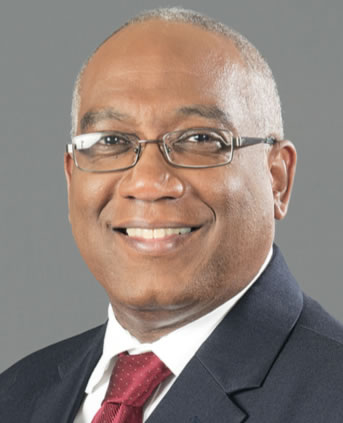In the midst of this ongoing state of upheaval caused by the global pandemic COVID-19, Trinidad and Tobago received news reports in April of plummeting global oil prices. The full impact of this, like many other aspects of life at this time, we do not know. We do know, however, that this does not bode well for the future of this nation. For decades Trinidad and Tobago has dealt with an almost existential fear of our dependence on oil and gas. A dependence we have been infuriatingly unable to break. The concern now is that we might finally have arrived at the point where we must face the consequences of that dependence.
I began this message not to strike a note of pessimism, but of urgency. As much as Trinidad and Tobago is an exceptional country with an enviable legacy in its short history, we have for years been hampered by a lack of collective urgency. I say “collective” because individually and in groups we have produced ultra-performers in the arts, sciences, business, community service and governance. But collectively, when massive action is required to move us forward together we have too many times been trapped in a malaise. Well COVID-19 is staring us in the eye and daring us not to take it seriously – like a bully, jutting out its chin at us, holding a big stick over our health, economy, and way of life as if to say, “go ahead, you skylark”. It has pushed us against a wall and the only way out is through massive action.

Admittedly, we have been acting collectively in our national response to the pandemic. I am particularly quite pleased to note that the Government has established a post-COVID-19 “Roadmap to Recovery” team. Some of UWI’s own experts in business, foreign policy, and health economics have been appointed to the team. As mentioned in the last issue of UWI TODAY and featured in this one, members of our campus community are also taking action, many times at personal risk, to help the society in this fight.
Most recently, the School of Veterinary Medicine’s Molecular Biology Laboratory has begun working with the Ministry of Health to process samples for real-time testing for COVID19. This is to increase the national capacity for testing. The undertaking is being done under the purview of the Trinidad and Tobago Public Health Laboratory (TTPHL) working closely with scientists, medical experts, and technical staff from our Faculty of Medical Sciences.
Still, I believe the collective can do more. One of the positives to come out of this experience has been a better appreciation of the work it takes to keep society functioning and the workers themselves. I am referring not just to our medical professionals and protective services, but also those citizens who drive taxis, work in groceries, provide our utilities, pick up our garbage, run our pharmacies and many more. For them, work means real risk for themselves and their families. Still they do it.
The question which arises is what more can be done to support our citizens on the COVID-19 battlefield. I am not asking or advocating for any citizen to put themselves in any unnecessary risk or defy our national policy of social distance. I am asking if we can be more creative in our support of others. Even small acts can make a difference. There are many people in this society that were barely surviving before the pandemic but who are now at the edge of an abyss.
As our own Makandal Daaga scholarship winning Law student Kareem Marcelle said in the course of his own efforts to provide food to people in need: “You realise how hard people have it in this country, regardless of the community they come from.”
Kareem is a great example of social conscience during this crisis. With little support outside of his family, he has purchased and delivered food to many people, braving the risk of COVID-19 and many times using his own money. If you are looking for a way to contribute to our national community I would recommend supporting Kareem’s work (see back page story for contact details).
I recommend as well, contributing to our project for the local manufacturing of medical equipment for our health professionals and citizens to protect them from this coronavirus (see frontpage story). You can find more information at our UWI Against COVID-19 website: https://sta. uwi.edu/covid19/campaign.php.
But really, any way you see fit to help, big or small, can be of value. Even to yourself. This experience is taking an enormous toll on the mental health of many people. But as an article from the Harvard Medical School states, “Studies have shown that volunteering helps people who donate their time feel more socially connected, thus warding off loneliness and depression”. This research shows that the act of giving makes a positive impact on our thoughts and emotional well-being. And that sounds like the medicine we all need.